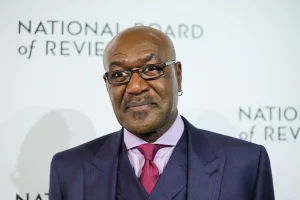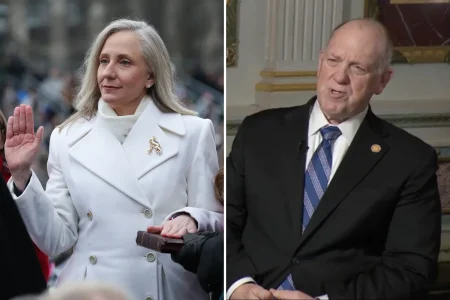Dutch Progressives Make Stunning Political Comeback, Exit Polls Suggest
Center-Left Party Emerges as Leading Political Force as Far-Right Loses Ground
In a significant political shift that has captured international attention, a center-left party appears positioned to become the Netherlands’ dominant political force, according to exit polls released Wednesday evening. The surprising outcome represents a major reversal from recent political trends, with the anti-immigration Party for Freedom (PVV), led by controversial figure Geert Wilders, projected to lose a substantial 12 parliamentary seats.
The exit polls, conducted by leading Dutch research institutes, indicate a remarkable turnaround for progressive politics in a country that has wrestled with polarization and populist movements in recent years. Political analysts are describing the results as a potential watershed moment in Dutch politics, suggesting voters may be seeking more moderate voices amid ongoing economic and social challenges.
Political Landscape Undergoes Dramatic Transformation
The Netherlands has long been characterized by its multi-party system, where coalitions are necessary to form functioning governments. This fragmentation has allowed smaller parties with focused agendas to wield significant influence in policy discussions. However, Wednesday’s results hint at a possible consolidation of the political center, as voters appear to have rallied behind established parties promoting stability and pragmatic solutions.
“What we’re witnessing is potentially a recalibration of Dutch politics,” said Dr. Emma van den Berg, professor of political science at Utrecht University. “After years of fragmentation and the rise of populist movements, voters seem to be expressing a desire for unity and practical governance rather than divisive rhetoric.”
The center-left party’s success appears to stem from its campaign focus on addressing housing shortages, healthcare accessibility, and climate policy – issues that have resonated deeply with a broad spectrum of Dutch voters. Their platform emphasized collaborative solutions rather than the confrontational approach often associated with parties at the political extremes.
Wilders’ Party Faces Unexpected Setback
The projected 12-seat loss for Geert Wilders’ Party for Freedom represents one of the most significant electoral setbacks for a European far-right party in recent years. Wilders, known for his provocative statements regarding immigration and Islam, has been a polarizing figure in Dutch politics for nearly two decades.
Since founding the PVV in 2006, Wilders has campaigned on platforms centered on anti-immigration policies, criticism of the European Union, and opposition to what he terms the “Islamization” of the Netherlands. His approach has garnered international attention and influenced similar movements across Europe, making this apparent electoral reversal all the more noteworthy.
Political commentators suggest several factors may have contributed to the PVV’s diminished support. “The party’s confrontational style may have lost its appeal as voters grapple with practical concerns like inflation and housing costs,” explained Joost Vermeulen, a political correspondent for De Volkskrant. “Additionally, the center-left effectively reframed the national conversation around shared economic challenges rather than cultural divisions.”
Economic Concerns Drive Voter Decisions
Exit polling data indicates that economic concerns played a crucial role in shaping voter decisions. The Netherlands, despite its overall prosperity, has faced significant challenges in recent years, including a housing crisis that has left many young adults unable to purchase homes, rising energy costs, and persistent inflation.
The center-left party appears to have successfully positioned itself as offering pragmatic solutions to these economic challenges. Their campaign emphasized affordable housing initiatives, sustainable energy transitions that protect consumers from price volatility, and investments in public infrastructure to boost economic growth.
“Dutch voters have consistently shown they care deeply about economic management,” noted financial analyst Marieke de Jong of ABN AMRO bank. “The center-left managed to present a compelling economic vision that balanced growth with social protections, which clearly resonated with the electorate.”
Voter turnout was reportedly robust across the country, with particularly strong participation in urban centers where economic concerns like housing affordability are most acute. This engagement suggests a highly motivated electorate focused on securing concrete improvements to their daily lives.
International Implications of Dutch Electoral Shift
The apparent retreat of far-right influence in the Netherlands could have significant implications for European politics more broadly. The Netherlands has often served as a political bellwether, with trends emerging there subsequently appearing in other European democracies.
“What happens in Dutch elections often foreshadows political developments elsewhere in Europe,” said Dr. Sophie Lambert, director of the European Policy Institute. “If this center-left resurgence is confirmed, it could signal similar shifts in upcoming elections across the continent.”
European leaders in Brussels are likely watching these results with particular interest, as the Netherlands has been an influential voice in EU policy discussions. A center-left government would potentially align more closely with the current European Commission’s priorities on climate action, digital regulation, and economic integration.
Financial markets responded positively to the exit polls, with the Amsterdam exchange showing modest gains in early Thursday trading. Analysts suggest this reflects investor confidence in the likelihood of stable, predictable governance following the formation of a new government.
Coalition Building Process Begins
Despite the center-left’s apparent success, the complex nature of Dutch politics means that forming a government will require coalition negotiations that could extend for weeks or even months. No single party is projected to secure enough seats to govern alone, necessitating compromises between multiple political groups.
“The real work begins now,” said political strategist Willem Bakker. “While the center-left may have emerged as the largest party, they’ll need to build bridges with other parties to form a working majority. This process will reveal whether this election truly represents a fundamental shift or merely a temporary realignment.”
The most likely coalition partners for the center-left include centrist and progressive parties that share common ground on issues like climate policy, European integration, and social services. However, differences on tax policy, immigration, and housing solutions could complicate these negotiations.
The Netherlands’ King Willem-Alexander will now begin the formal process of appointing an informateur – a neutral figure tasked with exploring viable coalition options. This traditional approach to government formation reflects the country’s consensus-oriented political culture, which has historically favored stable, collaborative governance despite ideological differences.
As the Dutch political landscape begins this transition, citizens and international observers alike will be watching closely to see whether this apparent progressive resurgence translates into effective governance capable of addressing the complex challenges facing this pivotal European nation.






